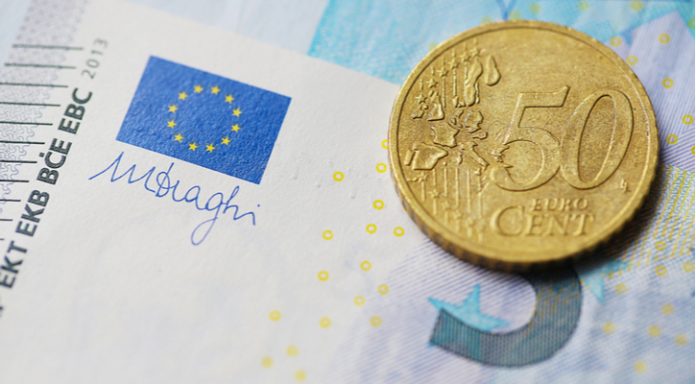The pound dropped sharply against the euro on Monday, after disappointing UK economic data. The pound euro exchange rate dropped 50 points early to a low of €1.1321 before attempting to claw back some of the losses across the session, closing at €1.1350.
| What do these figures mean? |
|---|
|
When measuring the value of a pair of currencies, one set equals 1 unit and the other shows the current equivalent. As the market moves, the amount will vary from minute to minute. For example, it could be written: 1 GBP = 1.13990 EUR Here, £1 is equivalent to approximately €1.14. This specifically measures the pound’s worth against the euro. If the euro amount increases in this pairing, it’s positive for the pound. Or, if you were looking at it the other way around: 1 EUR = 0.87271 GBP In this example, €1 is equivalent to approximately £0.87. This measures the euro’s worth versus the British pound. If the sterling number gets larger, it’s good news for the euro. |
The pound dropped heavily at the start of the week after a slew of lacklustre figures. The UK manufacturing sector unexpectedly suffered its largest loss in output in 5 years, raising concerns over the strength of the UK economy once more. Falling demand for steel and electrical machinery was mainly to blame for UK Manufacturing output falling by 1.4% in April against an increase predicted by analysts of 0.3%.
| Why does poor economic data drag on a country’s currency? |
|---|
| Slowing economic indicators point to a slowing economy. Weak economies have weaker currencies because institutions look to reduce investments in countries where growth prospects are low and then transfer money to countries with higher growth prospects. These institutions sell out of their investment and the local currency, thus increasing supply of the currency and pushing down the money’s worth. So, when a country or region has poor economic news, the value of the currency tends to fall. |
Today investors will be watching high impacting economic releases as well as a Brexit Bill vote in the commons. There had been doubt over the past few days as to whether UK Prime Minister Theresa May would secure sufficient votes. She issued a final plea to her rebel party members not to undermine her negotiating ability with Brussels by voting against the government on the EU withdrawal bill. Senior party officials believe that the Bill could just scrape through.
UK Jobs data will also be in focus. Weekly earnings are expected to have remained constant in the 3 months to April at 2.9%. Should this be the case, it will have been comfortably above inflation which was 2.4% in April. This would mean that the pressure continued to ease on the UK consumer, which is a good sign for domestic inflation and therefore rate hike prospects.
| Why do raised interest rates boost a currency’s value? |
|---|
| Interest rates are key to understanding exchange rate movements. Those who have large sums of money to invest want the highest return on their investments. Higher interest rate environments tend to offer higher yields. So, if the interest rate or at least the interest rate expectation of a country is relatively higher compared to another, then it attracts more foreign capital investment. Large corporations and investors need local currency to invest. More local currency used then boosts the demand of that currency, pushing the value higher. |
German ZEW Sentiment Data T Pull Euro Lower?
The euro was broadly in favour on Monday after the Italian Finance Minister announced that he supported Italy remaining in the euro. Fears over the new Italian populist government wanting to remove the Italy from the eurozone had been weighing on demand for the common currency over the past few weeks. Investors were pleased to hear the certainty and will now be able to put the fear behind them.
Today investors will look towards German ZEW Sentiment data. The index was unchanged in May at -8,2, however analysts are forecasting a decline to -14 as trade concerns and rising oil prices had a negative impact on economic expectations. A sharp fall in sentiment could pull the euro lower.
|
This article was initially published on TransferWise.com from the same author. The content at Currency Live is the sole opinion of the authors and in no way reflects the views of TransferWise Inc. |





